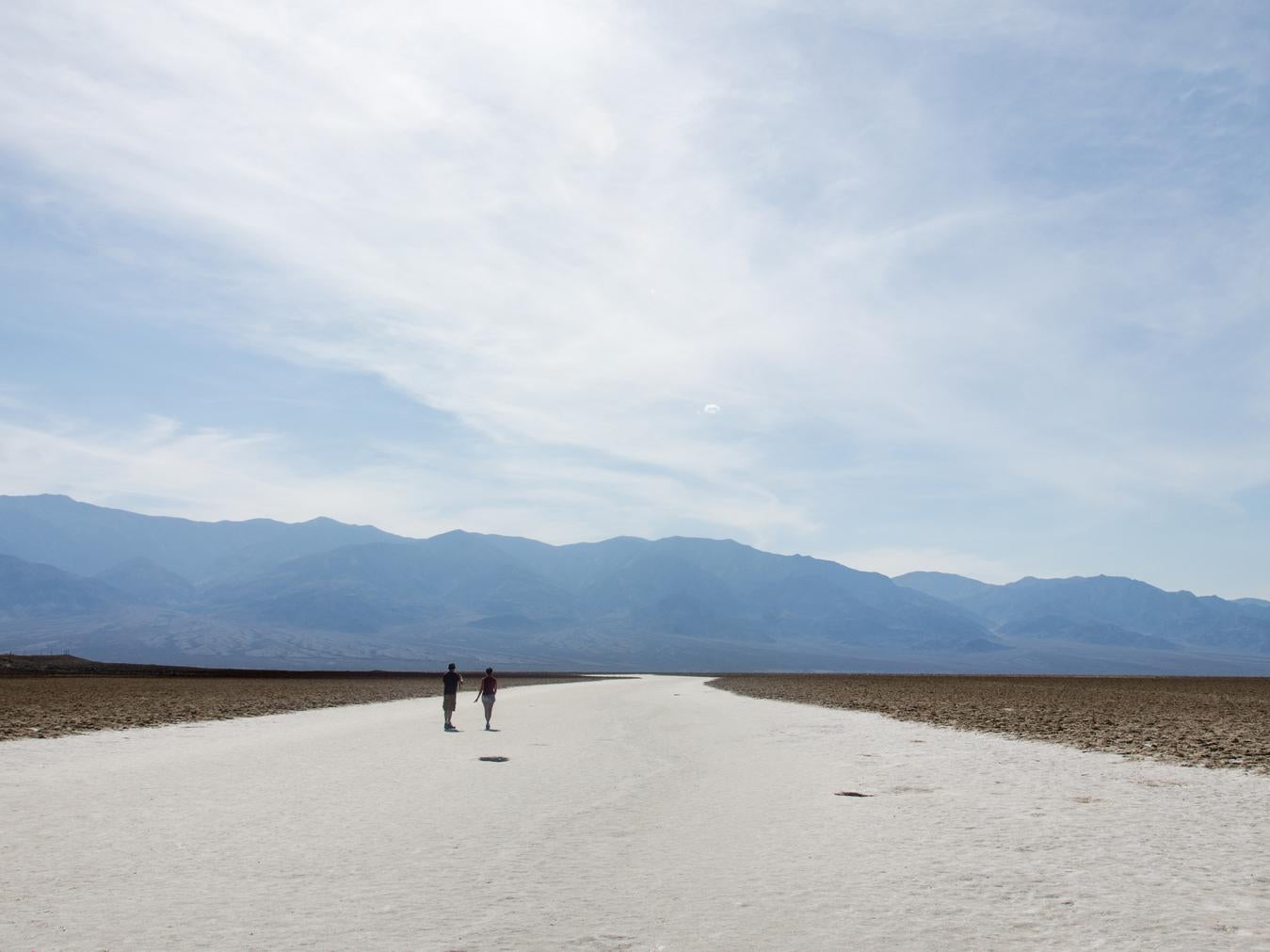Death Valley sets record for hottest month ever recorded on Earth
'It eclipsed the record by quite a bit'

California's Death Valley has smashed its own record for the hottest month ever recorded anywhere.
Preliminary results suggest the month's average temperature was 108.1F (42.28C).
This edges out the previous record, set in the valley at the same time last year, when the average was 107.4F (41.89C).
"It eclipsed the record by quite a bit," said Todd Lericos, a meteorologist who leads the Las Vegas National Weather Service, noting the new average will need to be reviewed before entering official record books.
The temperatures are measured at Furnace Creek in Death Valley National Park, a desert in south eastern California that includes Badwater Basin – the lowest point in North America.
The location also holds the world record for highest temperature ever recorded – 134F (56.67C) – set on July 10, 1913.
The valley got its morbid name from a group of pioneers who got lost there in 1849-1850 and thought it would be the end, according to the National Park Service. Only one died, however, before they found their way out.
Historic sites across UK exposed by heatwave
Show all 15Summer heat is so routinely extreme that tourists are warned to drink at least 4 litres of water each day, carry additional water in their cars, stay close to their vehicles and watch themselves and others for dizziness, nausea and other symptoms of potentially deadly heat illness.
Visitors are urged to "travel prepared to survive," avoid hiking at low elevations and return to their air-conditioned cars for a cool-down after just 10 to 15 minutes of exposure outdoors. Amid the heat, thunderstorms bring the threat of flash floods.
Even with that history, July was exceptional as a weather pattern stoked high temperatures.
A very persistent high-pressure system set up over the Southwest, restricting the movement of air vertically in the atmosphere and creating a heat wave.
"It was fairly intense for this time of year," said Mr Lericos.
Among the extreme conditions were four consecutive days reaching a high of 127F (52.7C) and overnight lows that remained over the century mark.
The records came as heatwaves scorched large areas of the planet, with deadly temperatures and wildfires striking the US from California to New York in July.
Record temperatures were recorded across much of the northern hemisphere, with the heat above the Arctic Circle described as “unprecedented”.
Many scientists warned that heatwaves of a similar scale and worse are likely to become more frequent in the future as the planet gets warmer.
Preliminary work by the World Weather Attribution network concluded the European heatwave was made more than twice as likely by climate change.
The researchers behind this analysis warned that the spiralling temperatures being recorded across the world should prompt leaders to take urgent action, both adapting to global warming and ensuring it does not get any worse.
Additional reporting by AP.
Subscribe to Independent Premium to bookmark this article
Want to bookmark your favourite articles and stories to read or reference later? Start your Independent Premium subscription today.

Join our commenting forum
Join thought-provoking conversations, follow other Independent readers and see their replies